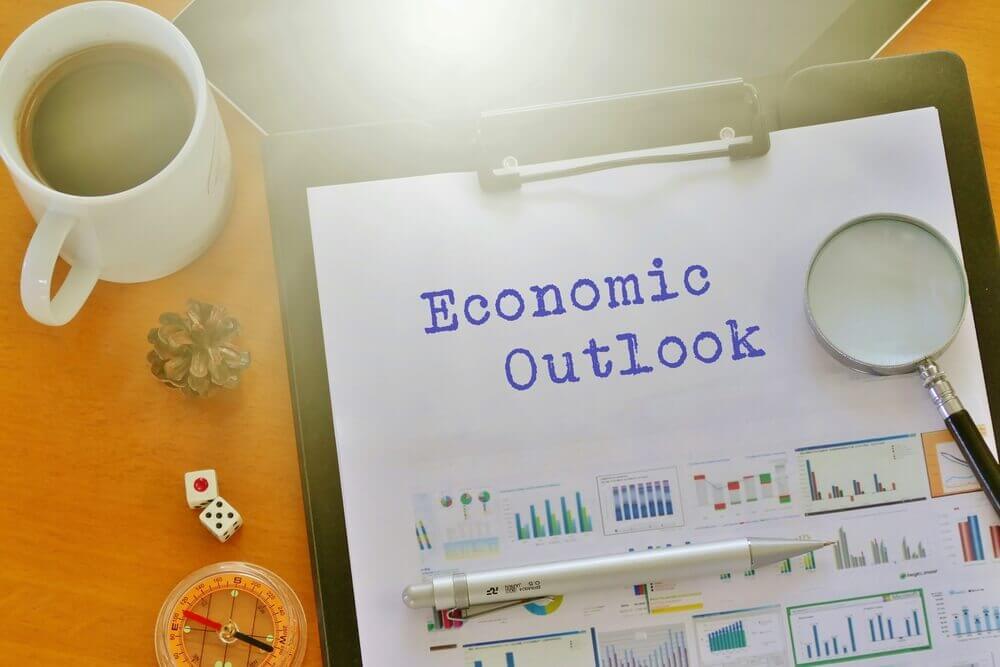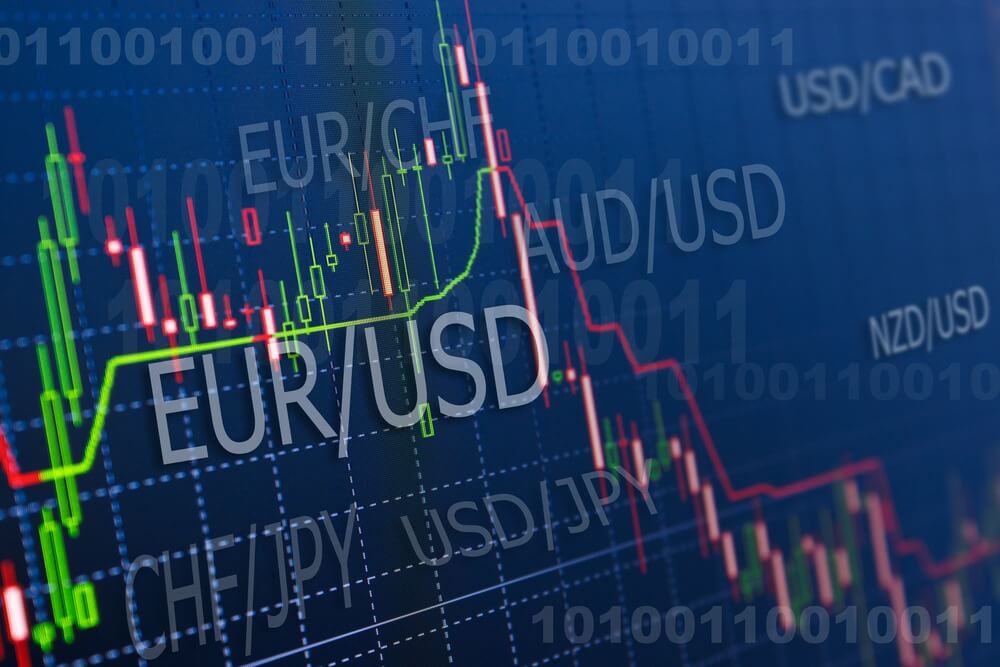Foreign exchange, or forex, represents the world’s largest financial marketplace. It is a global hub where buyers and sellers engage in trades amounting to trillions of dollars daily. The forex market stands out due to its massive liquidity and the continuous trading activity it experiences. Unlike stock markets, forex operates 24 hours a day, five days a week, reflecting the ongoing nature of global economic activities.
Macroeconomic events across the globe significantly influence forex trading. Economic policies, geopolitical developments, and significant economic indicators are pivotal in determining currency movements. For instance, a country that announces a major policy change often leads to immediate and noticeable impacts on its currency value.
Macroeconomic Factors
Macroeconomic factors are the primary drivers of the forex market. They encompass a wide range of economic variables that collectively influence the financial health of a nation. A country’s economic health is fundamental in determining the value of its currency. For example, strong economic performance typically leads to a stronger currency, while economic downturns can result in currency depreciation.
One of the key indicators of economic health is Gross Domestic Product (GDP), which measures the total value of goods and services produced within a country. A growing GDP indicates a healthy economy, potentially leading to a stronger currency. Conversely, a declining GDP may signal economic troubles and cause the currency to weaken.
Interest rates set by central banks are another crucial factor. Higher interest rates attract foreign investment, increasing demand for the domestic currency and thus boosting its value. On the other hand, lower interest rates can lead to capital outflows and a weaker currency. Inflation rates also play a significant role; moderate inflation is generally seen as healthy, while hyperinflation can erode the value of a currency.

Capital Markets
Capital markets serve as indicators of an economy’s overall health and stability. They encompass various financial instruments, including stocks, bonds, and other securities. Movements within these markets can provide valuable insights into economic conditions and, by extension, influence forex trading decisions.
Publicly available information in capital markets, such as corporate earnings reports, economic data releases, and government announcements, is easily noticeable and often priced into the market quickly. For forex traders, monitoring these sources is crucial for anticipating currency movements. For instance, fluctuations in treasury prices and the bond market are critical to forex due to their direct reliance on interest rates. A rising bond yield often signals higher interest rates, strengthening the domestic currency.
International Trade
The trade balance of a country significantly impacts its currency value. A trade surplus, where exports exceed imports, generally leads to currency appreciation. This is because foreign buyers must purchase the domestic currency to pay for the country’s goods and services, increasing demand for the currency.
Conversely, a trade deficit, where imports exceed exports, hurts currency value. Countries with large trade deficits may see their currencies weaken as they need to sell their currency to buy foreign goods and services. For example, countries with high demand for their goods, such as Germany with its automotive industry, often experience currency appreciation due to sustained demand from international buyers.
Political News
A country’s political landscape can profoundly affect its currency value. Political stability, government policies, and major political events such as elections, referendums, and fiscal or monetary policy changes can lead to significant currency fluctuations.
An illustrative example is the Brexit vote 2016, which caused substantial volatility in the British pound. The uncertainty surrounding the UK’s future relationship with the European Union led to a sharp decline in the pound’s value. Such political events create uncertainty in the markets, leading traders to either flock to safe-haven currencies or hedge against potential losses.
Economic Statistics
Economic reports are indispensable tools for forex traders. These reports provide insights into an economy’s current state and future direction. One of the most critical economic indicators is the GDP. Although it is a lagging indicator, it offers a comprehensive overview of economic performance.
Other vital economic statistics include inflation rates, employment levels, retail sales, manufacturing indexes, and capacity utilisation. Inflation, for instance, affects purchasing power and interest rates, influencing currency value. Employment levels indicate economic health; higher employment often leads to stronger consumer spending and a robust economy, positively impacting the currency. Retail sales and manufacturing indexes provide insights into consumer behaviour and industrial activity, respectively, while capacity utilisation measures the extent to which an economy uses its productive capacity.

Financial Institutions
Financial institutions, particularly central banks, play a significant role in influencing the forex market. Their policies and actions during economic downturns or periods of economic growth can lead to substantial market movements. Central banks use interest rate adjustments, open market operations, and quantitative easing to manage economic stability.
Central banks may lower interest rates during economic downturns to stimulate economic activity. Such actions can weaken currency as investors seek higher returns elsewhere. Conversely, raising interest rates to curb inflation can attract foreign investment, strengthening the currency. Financial institutions use currency interventions to stabilise or devalue their currencies as part of broader economic strategies.
Factors Influencing Forex
Several factors influence the forex market beyond the aforementioned macroeconomic elements. Economic cycles, investor sentiment, and demand for government bonds play crucial roles. During economic expansions, investors are generally more willing to take risks, increasing demand for higher-yielding currencies. In contrast, there is a flight to safety during recessions, with investors preferring stable currencies and safe-haven assets.
Major currency pairs, such as EUR/USD, GBP/USD, and XAU/USD, often become focal points during economic downturns. These pairs are heavily traded and offer insights into broader market trends. For instance, the EUR/USD pair reflects the economic dynamics between the Eurozone and the United States, gauging investor sentiment and economic outlook.
Geopolitical Risks
Geopolitical risks introduce significant volatility into the forex market. Wars, trade disputes, and diplomatic tensions can lead to rapid and unpredictable currency movements. Understanding the impact of these risks is crucial for forex traders aiming to navigate the market successfully.
1. Russia-Ukraine War
The Russia-Ukraine War has profoundly impacted global markets, including commodity futures, forex, and European and US equities. The conflict led to a spike in energy prices, with oil reaching $140 per barrel in March 2022. Wheat futures also saw a nearly 60% increase due to disruptions in supply from these major grain-producing nations.
The Russian currency faced severe sanctions, removing it from most exchanges. This created significant volatility in the forex market as traders reacted to Russia’s rapid devaluation and subsequent measures to stabilise its currency. European equity markets experienced sharp declines but displayed remarkable resilience, recovering quickly as the situation stabilised.
2. US-China Trade Dispute
The trade dispute between the United States and China is another example of geopolitical risks affecting the forex market. Imposing tariffs by the US and retaliatory measures by China led to volatility in stock values, commodity prices, and foreign exchange rates.
Manufacturing, agriculture, and technology sectors were particularly affected, with stock prices experiencing significant fluctuations. Commodity prices also saw sharp movements as the trade war impacted global supply chains. The Chinese yuan and US dollar experienced increased volatility, reflecting the uncertainty and shifting trade dynamics. Despite these tensions, global trade saw a 3% increase, influencing forex pair rates and providing opportunities for traders to capitalise on the evolving situation.

Forex Trading Strategies
Developing effective trading strategies in forex requires an awareness of global economic news and geopolitical events. Traders must focus on the lead-up to, during, and after significant events to make informed decisions. Diversification and proper hedging are crucial to managing portfolio risk. By spreading investments across different assets and employing hedging techniques, traders can mitigate potential losses and enhance the stability of their portfolios.
1. Awareness of Global Economic News
Staying informed about global economic news is essential for forex traders. Economic reports, central bank announcements, and geopolitical developments influence currency values. Traders should regularly review news sources and economic calendars to stay updated on events that might impact the forex market. This awareness allows traders to anticipate market movements and make strategic decisions.
2. Focus on Event Timeframes
Focusing on the specific timeframes of significant events can help traders maximise their opportunities. For example, understanding the potential impacts of an upcoming central bank meeting or a major political election can guide trading strategies. Traders should consider the potential outcomes and their likely effects on currency values. By analysing the lead-up, actual event, and aftermath, traders can better predict market reactions and adjust their positions accordingly.
3. Diversification and Hedging
Diversification involves spreading investments across various assets to reduce risk. This can mean trading different currency pairs or incorporating other financial instruments into the portfolio in forex trading. Hedging involves taking offsetting positions to protect against adverse market movements. For instance, a trader might use options or futures contracts to hedge against potential losses in the spot market. These strategies help manage risk and improve the overall stability of a trading portfolio.
Conclusion
Forex trading is a complex and dynamic field influenced by numerous factors, including macroeconomic conditions, political events, and geopolitical risks. Understanding the interplay between these elements is crucial for successful trading. By staying informed about global economic news, focusing on key events, and employing diversification and hedging strategies, traders can navigate the forex market more effectively. As the world continues to evolve, forex traders must adapt to new developments and refine their strategies to achieve long-term success.
















